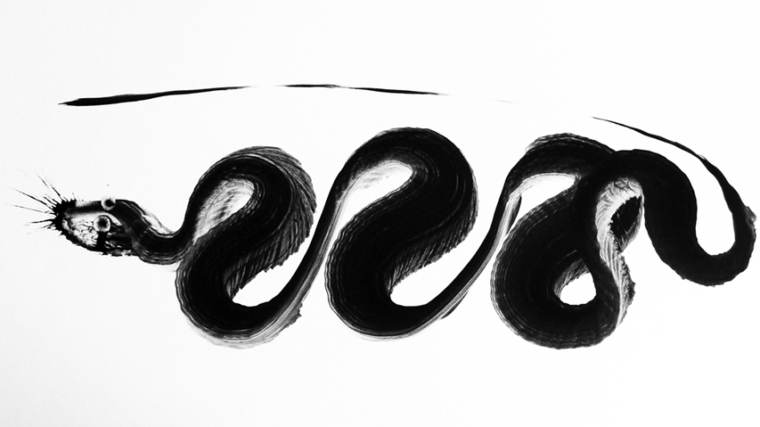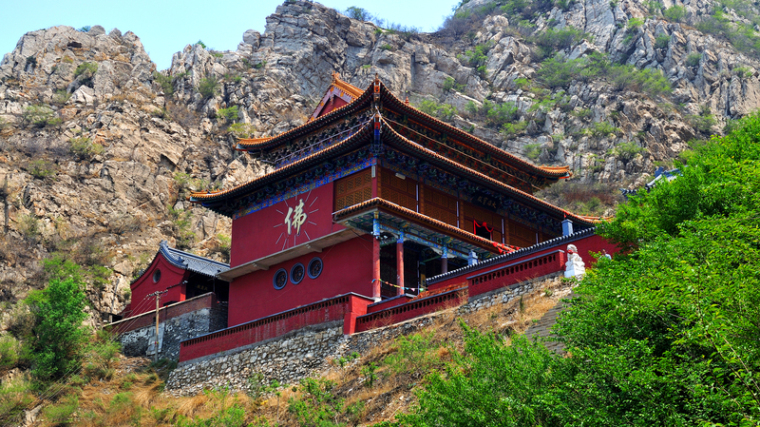Blue Cliff Record, Case 5
Hsueh Feng, teaching his community, said, “Pick up the whole great earth in your fingers, and it’s as big as a grain of rice. Throw it down before you: if, like a lacquer bucket, you don’t understand, I’ll beat the drum to call everyone to look.”
Reflections
Xuefeng Yicun (822-908) was a student of Deshan. He and Yantou were close friends and studied together at Deshan’s place. Before going to Deshan’s Xuefeng studied with Dongshan where he served as cook. But Dongshan told him to go to study with Deshan. At Deshan’s he was the cook in the koan about old Deshan who come out of his room, bowls in hand, to eat, before the dinner bell had struck. Yantou was the one Xuefeng told about the old befuddled Master. Yantou then said the Deshan still didn’t know the “last word.” And the rest is found in the thirteenth koan of the Wumenkuan.
Xuefeng was contemporary of Zhaozhou. It is not known if they ever met. But it was Xuefeng who call Zhaozhou the “Ancient Buddha of Zhaozhou.”
Xuefeng’s great opening took place while he was on a pilgrimage with his brother student Yantou. They stayed at an inn during a snowstorm. Xuefeng spent his time meditating and studying. Yantou relaxed and slept. I imagine they had something like the following conversation.
Xuefeng: What’s wrong with you? Why do you spend your time lazing around? Why don’t you meditate and study? What kind of a monk are you?
Yantou: And what’s wrong with you? Sitting upright like you are you remind me of one of the painted-up clay idols in the many village shrines all over China. Why do you spend so much time in idle meditation? Do you actually get something out of it? What you learn about yourself?
Xuefeng: Well now that you mention it, my mind races around like a windmill. Going round and round in circles. Getting nowhere. I don’t know if I know anything at all about the teachings. Do you think I know anything or not?
Yantou: I think as long as you keep going about it ass-backwards you don’t! The teachings don’t come by sitting on your ass. They have to come from your heart. Then you will cover heaven and earth with them.
With these words, Xuefeng got it.
That this was the turning point of his life is confirmed by the saying attributed to him, when he was asked what he learned at Deshan’s place. He said, “I went there empty-handed, and empty-handed I returned.” As an aside, this saying can also be understood to have the complete opposite meaning similar to the famous quote of Dogen’s. Upon his return, he was asked what he learned in China. His response was that his nose was vertical and his eyes were horizontal.
What I find amazing about this koan is that I have not been able to find early references to it in any of the other koan collections, such as the Dentoroku, or Andy Ferguson’s Zen’s Chinese Heritage. There is another translation made by Thomas Cleary who is one of the two Cleary brothers who translated the Secrets of the Blue Cliff Record. Papa Dogen doesn’t mention the koan anywhere; not in the Shobogenzo, the Eihei Koroku, nor his collection of 300 koans, the Mana Shobogenzo .
There is a translation made by Sekida.
Seppo addressed the assembly and said, “All the great world, if I pick it up with my fingertips, is found to be like a grain of rice. I throw it in front of your face, but you do not see it. Beat the drum, telling the monks to come out to work, and search for it.”
There is another translation found online, translator unknown.
Seppô, teaching the assembly, said, “When you pick up the whole earth in your fingers, it’s the size of a grain of rice. I cast it down before you. Like in a black lacquer bucket, you don’t recognize it any more. Beat the drum, call everyone to look for it!”
Finally, there is the other translation of Cleary in his Secrets of the Blue Cliff Record.
Seppo said to a group, “Pick up the whole world in your fingers, and it’s as big as a grain of rice. Toss it in front of you; if you’re in the dark, not understanding, beat the drum to muster everyone to look.”
Tenkei, one of the two commentators in the Secrets collection says, “This koan is often misinterpreted to represent the merging of the great and the small, or the one and the many. This is very wrong.” He also suggests that when all discriminating thinking stops—right and wrong, gain and loss, etc., then the universe shrinks to the size of a grain of rice. (Secrets 21)
I would say “yes” and “no,” “but more” to Master Tenkei comments. Yes, to his claim that the diminishing of discriminating thinking is analogous to the shrinking of the dualities of the universe. No, to his claim that the merging of the great and the small or the one and the many is and incorrect understanding of the koan. I find the imagery of the ricegrain and the universe to be very much in line with Hua Yen teachings of the workings of the Dharma. The entire universe contained on the tip of a follicle of hair. The entirety of the moon contained in every drop of water. The imagery of Indra’s net where each intersection of the net contains a jewel which reflects all of the other jewels of the net. The teaching of Shitou who says in the “Identity of Relative and Absolute,”
All spheres, every sense and field,
Intermingle even as they shine alone,
Interacting even as they merge
Yet keeping their places in expressions of their own.
And there is the merging of the one and the many and the great and the small in this koan. But there’s more. And what is that more?
There is that within us which is the Inner Light, The Unknown, the Unborn, which is BuddhaNature, the Inner Christ, the Buddha, the Dharma. It is that which knows. That which understands. That which loves. That which feels the pain and suffering of others. That which reaches out to touch and heal. That which informs our being. That which informs the entire universe. That we are capable of love of compassion of simply being. It is there. Here. Within. It is the Dharma.
But being the fatheads that we are we sometimes lose it. And one of the ways we lose it is crazy. We simply do not believe in ourselves. We do not believe that we have it. We think we’re so stupid and insignificant that nothing so wonderful can possibly be here within us. We get depressed. We think we’re nothing. An so by being so we throw it away and lose sight of it. We throw away the riceseed of the universe. Then realizing what’s happened we panic. We frantically look for it. We realize the craziness of what we have done and then we should beat the drum and get all the help we can to find our lost treasure. Beat the drum, call 911, go to the emergency rooms of the hospitals of our hearts, appeal to all our friends in the sangha, tackle and plead with our teachers, go out into the woods to try get again in touch with our inner beings. Put our kayaks into a quiet lake and paddle away in silence and peace. Do anything everything whatever we can think of to regain our lost treasure. Sit hard at our zazen. Make the search the koan focus point of our meditation. Put everything into it.
That’s what I find in this wonderful koan. And it brings me peace. Even when I look around and see that I have succeeded in being nobody.
If you want bigness and action and meaning and significance and brocade and great followings and relevance and social engagement you can easily find it. But not here. You may think I’m kidding when I say I teach a zenbuddhism where nothing happens. And that’s probably why there are so few people here. Because this is the place where nobody reigns. This is the place where everything is small. And everybody counts. And everybody has that wonderful grainseed of rice.
***
Hsueh Feng, teaching his community, said, “Pick up the whole great earth in your fingers, and it’s as big as a grain of rice. Throw it down before you: if, like a lacquer bucket, you don’t understand, I’ll beat the drum to call everyone to look.”



